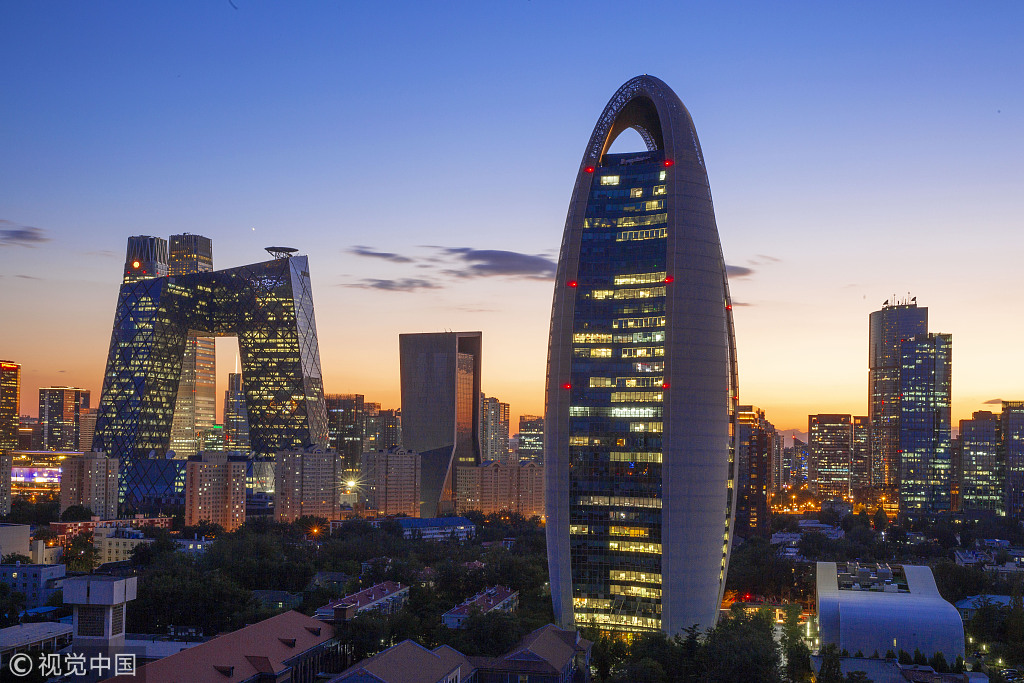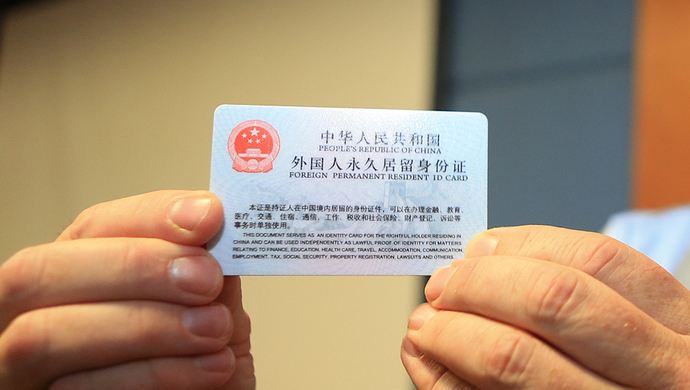
There are four main documents you need to work in China:
- Foreigner's Work Permit Notice
- Work Visa
- Foreigner's Work Permit
- Residence Permit
Read below to find out how to get them!
Finding a job in China is merely the beginning.
You still need to secure a Foreigner's Work Permit Notice, work visa, Foreigner's Work Permit and Residence Permit so that you can actually legally stay and work in China.
As of April 1, 2017, a new system was implemented nationwide with the intent of making the process more efficient. The initial application is done entirely online.
I have gone through the process myself and I'd like to share my personal experience. This is a long read but it includes every step along the way. You can also refer to the State Administration of Foreign Experts Affairs' - SAFEA website which has a handy guide, though not as much detail.
Congratulations, you're hired!
It all starts, of course, with finding a job (we can help you with that too!)
Once you have an employer that wants to hire you, it's time to start the application process, and you're going to need to supply a bunch of documents:
- Original copy of highest degree - notarized and authenticated
- Police criminal record check - notarized and authenticated
- Digital copy of your passport
- Digital passport-style photo
- Signed/stamped letter from previous employer - normally you need a minimum of two years' work experience
- Certificate from a recent health check - within 6 months
- Employment contract
Your employer fills out the online application form and you supply them with the documents. The documents are scanned and submitted electronically. It takes about 5 business days for the initial evaluation and if you are qualified, you need to submit the original paper documents (again, this was all done by my employer).
Your degree and police criminal record check have to be notarized. Luckily I have a good friend who just happens to be a notary public, so he did it for me for free as a favour. Otherwise, you'll have to pay for this service.
Your degree and police criminal record check also have to be authenticated by the Chinese embassy or consulate. For this I used an agency in Canada, but you can bring them yourself if you live nearby. I mailed the agency my degree, criminal record check (both already notarized), a completed copy of the agency's application form, the completed Chinese embassy application form, and a passport copy. Of course there is a charge for this service, about $300 Canadian (1500 RMB).
Once the degree and criminal record check were authenticated and returned, I couriered them to my employer, along with a letter from my previous employer's HR department stating the dates I had worked there and the nature of my work, and a health check I had done while in China (about 500 RMB).
If all the above goes smoothly and your application is approved, your employer will receive a digital copy of the Notification Letter Of Foreigner’s Work Permit In The People’s Republic Of China (or Foreigner's Work Permit Notice). I received a Chinese and an English copy.

They will also tell you what category of worker you fall into under the new system: A, B, C (Like most, I'm a B).
Vis-à-vis the visa
You can now bring this letter plus your passport to a Chinese embassy or consulate to apply for your work visa (Z or R).
I'm Canadian but at this point was in China (I had been studying) so I actually went to Hong Kong, not my home country embassy, specifically to the Office of the Commisioner of the Ministry of Foreign Affairs of the People's Republic of China in the Hong Kong Special Administrative Region. Here I presented the Notification Letter of Foreigner's Work Permit (Chinese copy), my passport, passport photo (most convenient place to get one taken in Hong Kong is the metro, most stations have photo booths), and just for good measure, a photocopy of my passport info page.
The visa fee is 600 HKD and if you're in a hurry, 24-hour rush service is another 300 HKD. Fee is paid at pickup, cash only!

I should note that my employer, at the initial time of application, had specified that I would be applying for my visa through Hong Kong and not my home country. I can't guarantee applying through an embassy or consulate other than your own home country will work for you, but that was my experience.
Foreigner's Work Permit
With passport and work visa in hand, the next step is to enter China, apply for and collect your Foreigner's Work Permit. You have to do this within 15 days of entering the country.
At this point I handed my passport off to my employer to finish the Foreigner's Work Permit application process. They will have to go to the local SAFEA office with your passport and visa.
After a few days for processing you will receive your new Foreigner's Work Permit.

Residence Permit - the final step
Now you're all set to get your Residence Permit which will let you stay in China.
Don't forget first to go to the local police station (PSB - Public Security Bureau) and register. You'll need the Registration Form of Temporary Residence. If you're staying at a hotel, you don't need to go directly to the PSB yourself, they can supply you with the necessary document if you ask.
You need to go to the Public Security Bureau Exit & Entry Administration Service Center to apply for your residency permit. Of course, this step also requires another pile of documents. In addition to the above mentioned Registration Form of Temporary Residence, you'll also need:
- Your passport
- A verification letter from your employer with their official seal
- Foreigner's Work Permit original and copies (also suggest bringing the Chinese language version of your Notification Letter of Foreigner's Work Permit; they might ask for it)
- The application form with passport-style photo affixed and employer's seal
Oh and there's a fee for that, 400 RMB. It takes one week to process.
The staff were quite friendly and helpful, even chatty, and wished me good luck with the new job in China.
A note: You need your passport to take a plane, train, or check into a hotel in China. But you won't be stuck while the PSB has your passport. They will issue you a yellow form with your photo and details that works in lieu of a passport for travel and hotels within China.
When you pick up your passport with freshly minted residence permit, don't forget to register again at the PSB! (They include a kindly reminder card in your passport).

A long but smooth process
So that was my experience with the new system. It is a long process with lots of steps and specific requirements, but everything went smoothly. I'll publish an update when it's time to renew and start the process all over again!
About the author:
Luke Callanan is a Canadian who has lived, studied, and worked in China for six years. He is the operations manager for Foreign HR's Shanghai office and member of the HR Committee of the Canadian Chamber of Commerce in Shanghai.









 京公网安备 11011202001511号
京公网安备 11011202001511号